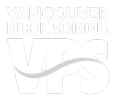SOCIAL STUDIES
DEVELOPING RESPONSIBLE CITIZENS IN A CULTURALLY DIVERSE, DEMOCRATIC SOCIETY IN AN INTERDEPENDENT WORLD
Social studies equips students to understand their own power and their own responsibility as citizens of a powerful democracy. It equips them to make sound judgments and actively contribute to sustaining a democratic society, maintaining good stewardship of the natural environment and enhancing the health and prosperity of their own communities.
CORE CONCEPTS
MORE ABOUT SOCIAL STUDIES
Elementary
Gaining tools to explore the world • Becoming familiar with primary and secondary sources and digital media • Learning strategies for asking good questions and doing research
Curriculum samples
Kindergarten through third grade
Fourth grade
Fifth grade
Middle school
Conducting research • Honing ability to gather and evaluate information • Using information as evidence in a wide range of endeavors
Curriculum samples
Sixth grade
Seventh grade
Eighth grade
High school
Conducting research • Honing ability to gather and evaluate information • Using information as evidence in a wide range of endeavors
Curriculum samples
Ninth grade
VPS does not offer a ninth-grade social studies course.
Tenth grade
Eleventh grade
Twelfth grade
All publishers retain ownership of their copyrighted materials. Curriculum materials cannot be distributed or reproduced without the written consent of the publisher. These materials are being shared with VPS families and the VPS community for informational purposes only.
